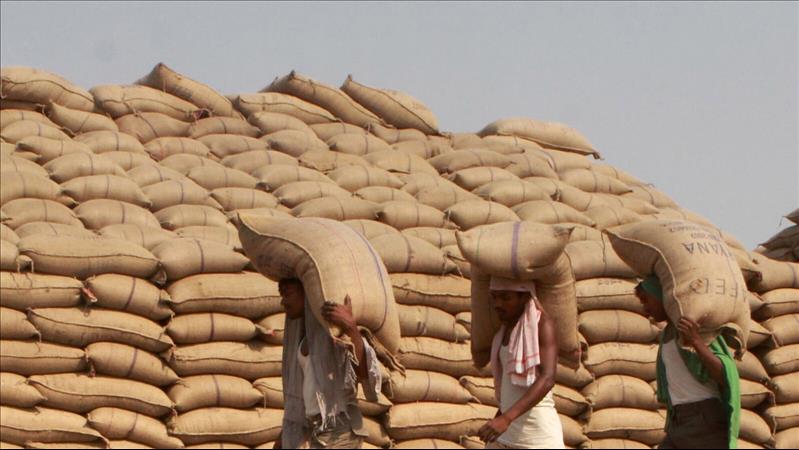
403
Sorry!!
Error! We're sorry, but the page you were looking for doesn't exist.
India Seeks Support For System To Raise Farm Import Duties
(MENAFN- Live Mint) "India is working to build a consensus among developing nations at the World Trade Organization (WTO) to push for a special safeguard mechanism (SSM) that will let them temporarily raise agricultural import duties, a person aware of the matter said. The trade body's 13th inter-ministerial meeting will be held in Abu Dhabi in February almost all developed members have the flexibility to protect their farmers through Special (Agricultural) Safeguards (SSGs), most developing members don't, leading to differences at WTO. Countries routinely resort to tariff hikes to protect their agricultural producers from the adverse impacts of import surges and price declines on the politically sensitive subject of agriculture is one of India's key priorities for the meeting, as it looks to gain greater policy space at WTO to ensure domestic food security at a time of volatile global food prices in the wake of the covid-19 pandemic and the Russia-Ukraine war.“Demand for the special safeguard mechanism was recognized in the Nairobi Ministerial Declaration of 2015, but due to the lack of consensus, the SSM continues to be stuck. India is currently seeking a simple, operable and accessible non-onerous SSM for developing countries,” the person cited above said on condition of anonymity had urged India in 2021 to lower agricultural tariffs and keep policies predictable. It said India's average agricultural tariff rose from 36.4% in 2014-15 to 36.5% in 2020-21. WTO members, especially the US, have also criticized India in the past for high tariffs and non-tariff measures developing members do not have any trade instrument under WTO to address it except by increasing the applied tariff to the“bound level”, as per a working paper by the Centre for WTO Studies at the Indian Institute of Foreign Trade (IIFT).“Similar to SSGs, which are available only to a few members, SSM seeks to provide flexibility to developing members to breach the 'bound tariff' in special cases of import surges and price dips in order to minimize its adverse impact,” the report said tariffs are the maximum tariff rates a WTO member has committed to and agreed not to exceed in its trade practices tariffs are those on which the member did not make any such commitment. A WTO member can increase customs duty on its unbound tariffs to any level SSM aims to provide flexibility to developing members to breach bound tariffs as well. For instance, India's present import tariff on apples is 50%, which is also its bound tariff. India can't raise it further even if its farmers struggle to compete with imported apples. The SSM seeks to provide flexibility to developing members to breach the bound tariff in special cases of import surges and price dips WTO agreements, apart from raising applied tariffs on an agricultural product to the bound level, most developing members do not have any other practical policy instrument to cushion the impact of import surges and price dips.“In case a developing member has a low tariff overhang, that is, the difference between bound and applied tariffs is low, it becomes difficult for the member to address adverse impacts of import surges and price declines of a concerned product,” the report co-authored by Prof. Abhijit Das, head of the Centre for WTO Studies, said experts said the push for the SSM should not be seen as merely driven by commercial interest but as a crucial tool in achieving various sustainable development goals, including zero hunger, eradication of poverty, and doubling agricultural productivity.A query sent to the commerce ministry remained unanswered till press
Legal Disclaimer:
MENAFN provides the
information “as is” without warranty of any kind. We do not accept
any responsibility or liability for the accuracy, content, images,
videos, licenses, completeness, legality, or reliability of the information
contained in this article. If you have any complaints or copyright
issues related to this article, kindly contact the provider above.


















Comments
No comment